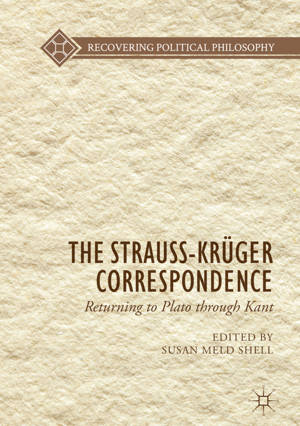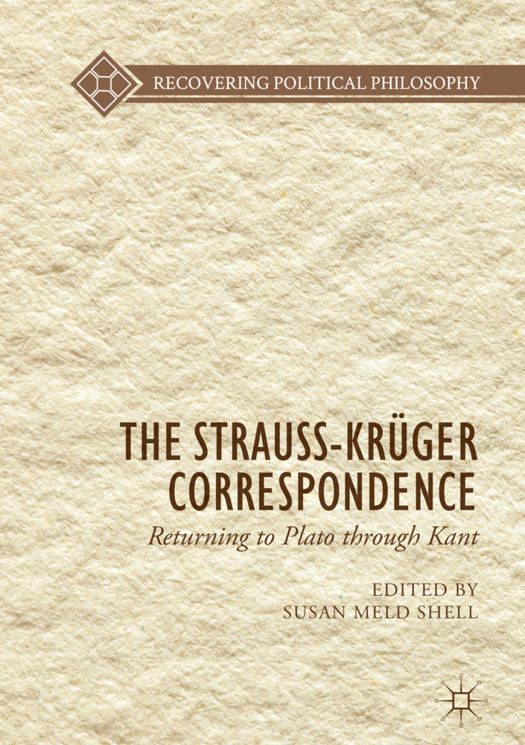
- Afhalen na 1 uur in een winkel met voorraad
- Gratis thuislevering in België vanaf € 30
- Ruim aanbod met 7 miljoen producten
- Afhalen na 1 uur in een winkel met voorraad
- Gratis thuislevering in België vanaf € 30
- Ruim aanbod met 7 miljoen producten
Zoeken
The Strauss-Krüger Correspondence
Returning to Plato Through Kant
€ 117,95
+ 235 punten
Omschrijving
This book presents the first full translation of the correspondence of Leo Strauss and Gerhard Krüger, showing for each the development of key and influential ideas, along with seven interpretative essays by leading Strauss scholars. During the early to mid-1930's, Leo Strauss carried on an intense, and sometimes deeply personal, correspondence with one of the leading intellectual lights among Heidegger's circle of recent students and younger associates. A fellow traveler in the effort to "return to Plato" and reject neo-Kantian conventions of the day, Krüger was also a serious student of Rudolf Bultmann and the neo-orthodox movement in which Strauss also took an early interest. During the most intense years of their correspondence, each underwent significant intellectual development: in Krüger's case, through a penetrating series of studies of Kant and Descartes, respectively, ultimately leading to Krüger's conversion to Catholicism; and, in Strauss's case, through the complex stagesof what he subsequently called his "reorientation," involving what he for the first time calls "political philosophy." Readers interested in tracing the development of Strauss's thoughts regarding a theological alternative that he found helpfully challenging--if not ultimately compelling--will find this correspondence to be an accessible point of entry.
Specificaties
Betrokkenen
- Uitgeverij:
Inhoud
- Aantal bladzijden:
- 237
- Taal:
- Engels
- Reeks:
Eigenschappen
- Productcode (EAN):
- 9783319742007
- Verschijningsdatum:
- 7/05/2018
- Uitvoering:
- Hardcover
- Formaat:
- Genaaid
- Afmetingen:
- 148 mm x 210 mm
- Gewicht:
- 453 g

Alleen bij Standaard Boekhandel
+ 235 punten op je klantenkaart van Standaard Boekhandel
Beoordelingen
We publiceren alleen reviews die voldoen aan de voorwaarden voor reviews. Bekijk onze voorwaarden voor reviews.







